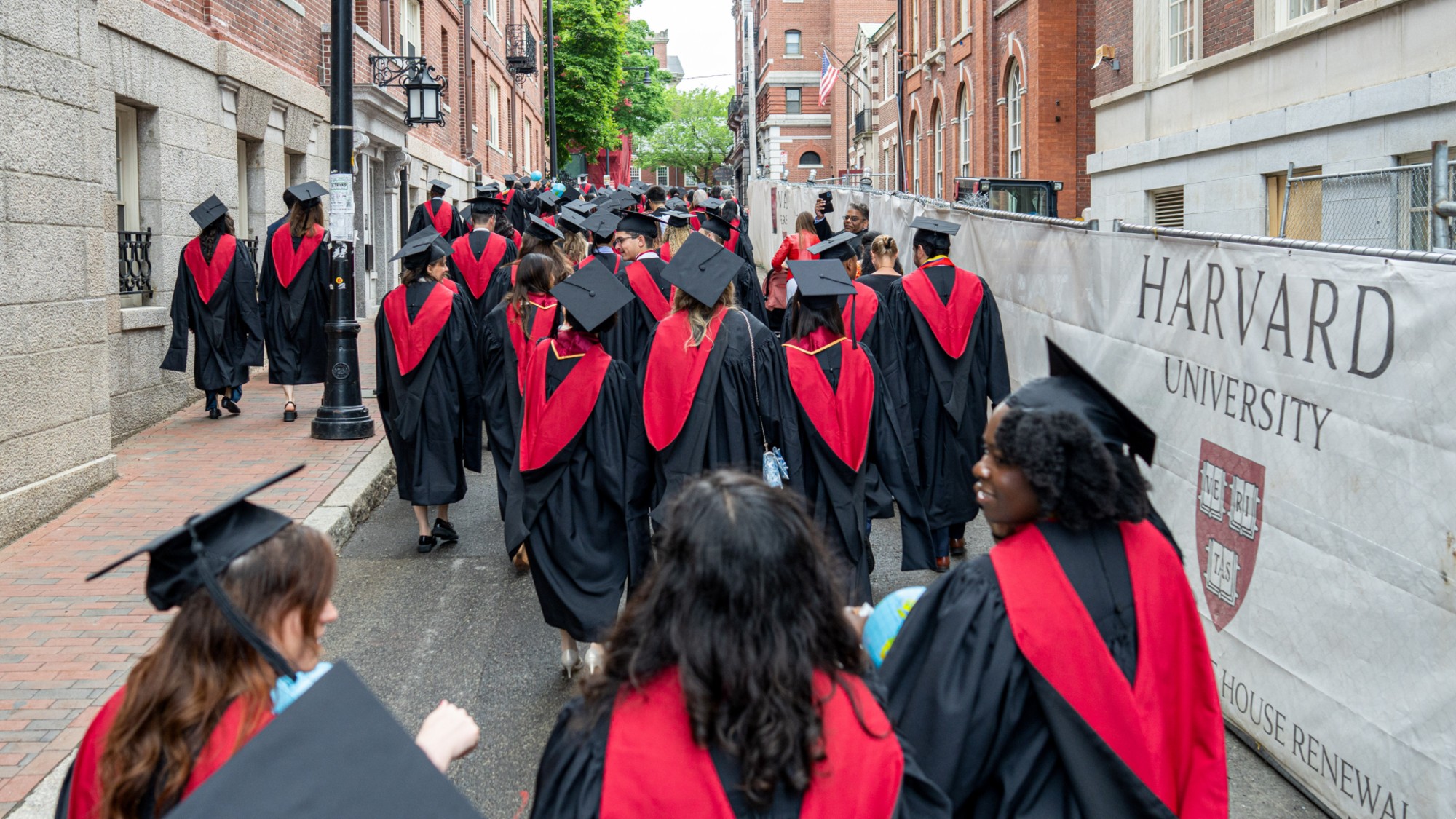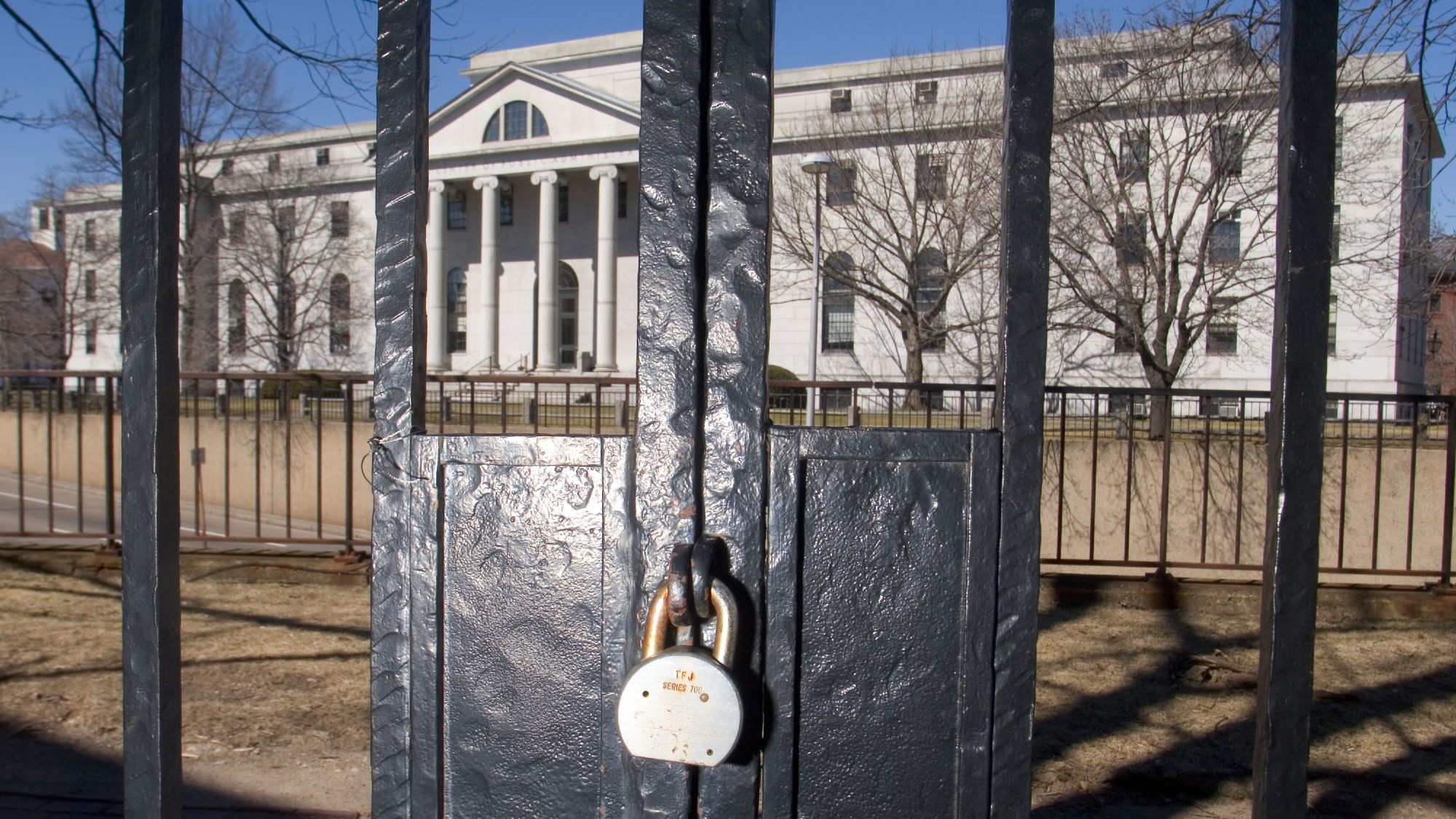Is university worth the money?
New government study examines whether the average UK student benefits economically from higher education

A free daily email with the biggest news stories of the day – and the best features from TheWeek.com
You are now subscribed
Your newsletter sign-up was successful
Tuition fee hikes have triggered questions about whether getting a university degree still pays off but now new research appears to confirm that it does - for female graduates, at least.
As the Government prepares to publish a review of higher education funding in 2019, the Institute for Fiscal Studies (IFS) has released the results of an analysis of the tax records of UK graduates now aged 29.
Overall, the review found that workers with a degree were earning more than those without by that age, but that there was a big difference based on gender, says The Independent.
The Week
Escape your echo chamber. Get the facts behind the news, plus analysis from multiple perspectives.

Sign up for The Week's Free Newsletters
From our morning news briefing to a weekly Good News Newsletter, get the best of The Week delivered directly to your inbox.
From our morning news briefing to a weekly Good News Newsletter, get the best of The Week delivered directly to your inbox.
According to the report, female graduates earn 28% more (£6,700) on average than their female peers who did not go to university, while men earn 8% (£2,700) more.
Report co-author Chris Belfield, a research economist at the IFS, said: “Overall, women have lower earnings growth than men. So the [economic] returns for a woman in going to university are relatively bigger than they are for men.”
Or to put it another way, “the greater benefits of a degree for women reflect the relatively lower earnings of non-graduate women - they are more likely to be in part-time, rather than full-time, work and might be in lower-paid jobs”, adds the BBC.
Meanwhile, the Financial Times points out that going to university actually has a “negligible or negative impact” for 33% of male graduates.
A free daily email with the biggest news stories of the day – and the best features from TheWeek.com
The institution attended and subject studied are important factors when it comes to future earnings. “Medicine, economics, maths and science are likely to deliver higher earnings,” says the BBC. “But studying art, English and philosophy, particularly for men, can leave graduates on average earning lower than those who did not go to university.”
A degree from a Russell Group university was found to be worth more for future earnings than modern universities, although graduates from at least one unnamed leading institution were left with salaries no higher than their non-graduate counterparts.
Universities Minister Sam Gyimah says that the Government wants to “crack down” on the “clutch of courses at certain universities which are not delivering the financial outcomes for students”.
“Where this leads us to is to have a relentless focus on quality,” he added.
However, a spokesperson for the National Union of Students (NUS) warned against focusing only on the economic returns of attending university.
“There is a danger that, amidst calls for greater transparency in how fee income is spent, the ‘value’ of a degree is reduced to solely individual financial outcomes. It risks reflecting the other substantial benefits that a university education can give to both the student and society,” the spokesperson explained.
The cut-off in the research at age 29 “is also likely to have skewed results, since for many former students the biggest salary increases come after the age of 30”, says the FT.
-
 What are the best investments for beginners?
What are the best investments for beginners?The Explainer Stocks and ETFs and bonds, oh my
-
 What to know before filing your own taxes for the first time
What to know before filing your own taxes for the first timethe explainer Tackle this financial milestone with confidence
-
 The biggest box office flops of the 21st century
The biggest box office flops of the 21st centuryin depth Unnecessary remakes and turgid, expensive CGI-fests highlight this list of these most notorious box-office losers
-
 American universities are losing ground to their foreign counterparts
American universities are losing ground to their foreign counterpartsThe Explainer While Harvard is still near the top, other colleges have slipped
-
 Oklahoma fires instructor over gender essay grade
Oklahoma fires instructor over gender essay gradeSpeed Read
-
 Education: More Americans say college isn’t worth it
Education: More Americans say college isn’t worth itfeature College is costly and job prospects are vanishing
-
 Penn wipes trans swimmer records in deal with Trump
Penn wipes trans swimmer records in deal with Trumpspeed read The University of Pennsylvania will bar transgender students from its women's sports teams and retroactively strip a trans female swimmer of her titles
-
 Where will international students go if not the US?
Where will international students go if not the US?Talking Points China, Canada and the UK are ready to educate the world
-
 Colleges are canceling affinity graduations amid DEI attacks but students are pressing on
Colleges are canceling affinity graduations amid DEI attacks but students are pressing onIn the Spotlight The commencement at Harvard University was in the news, but other colleges are also taking action
-
 Can Trump ban overseas students from US universities?
Can Trump ban overseas students from US universities?Today's Big Question President's decision to revoke Harvard's access to database for admitting international students 'drastically escalates' the dispute
-
 Harvard sues Trump over frozen grant money
Harvard sues Trump over frozen grant moneySpeed Read The Trump administration withheld $2.2 billion in federal grants and contracts after Harvard rejected its demands